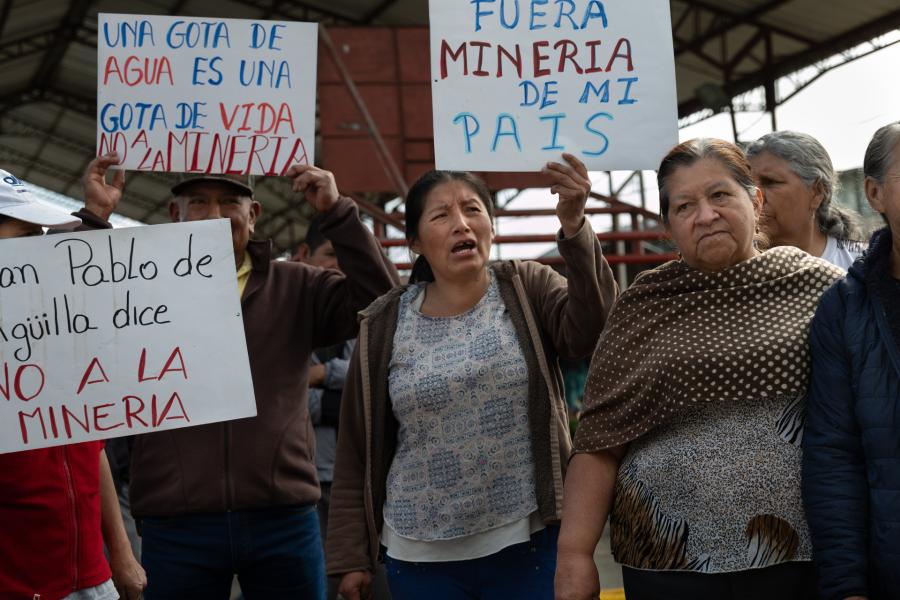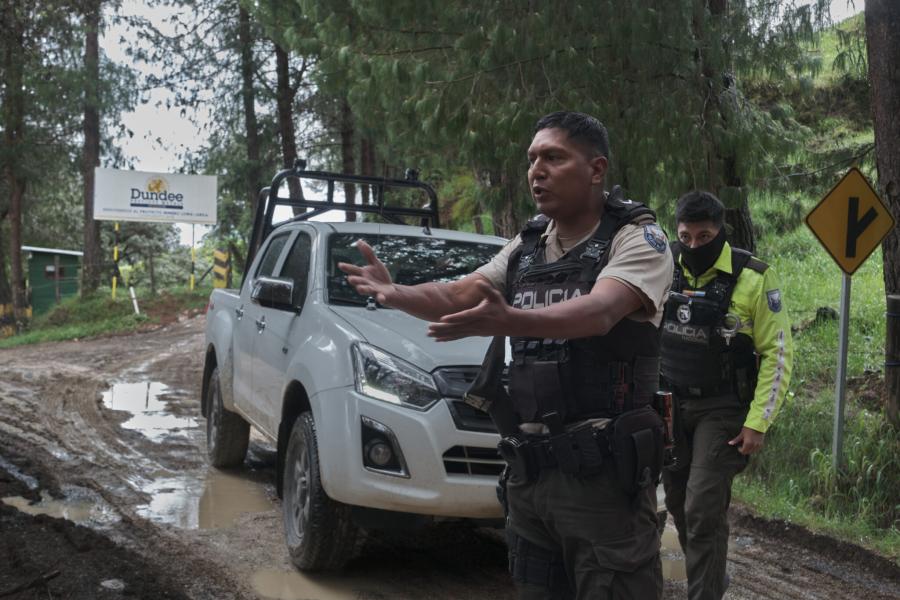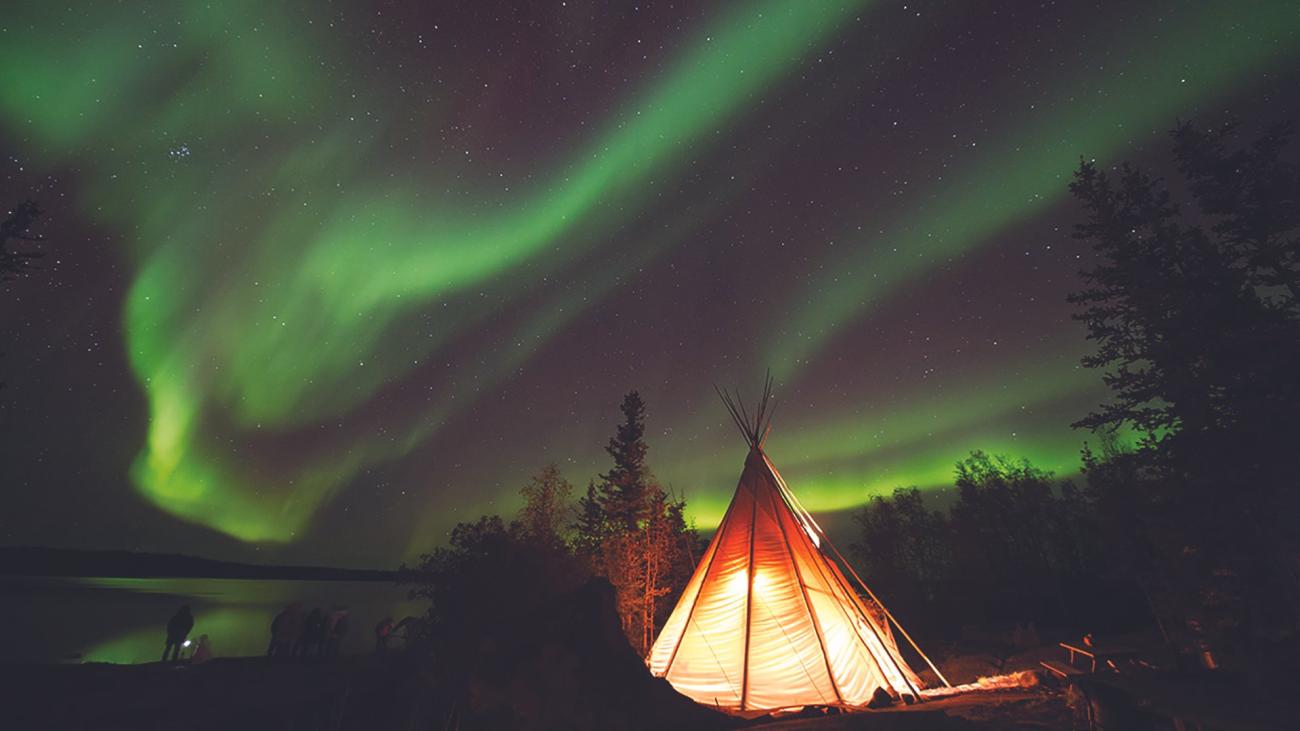
"The best journeys in life are those that answer questions you never thought to ask." - Rich Ridgeway, American mountaineer and environmentalist
Nothing about us without us
If travel is a journey to enlightenment, Indigenous tourism is a gateway to healing and sustainable well being for the First Nation, Metis, and Inuit women of Canada's North. As the Indigenous tourism industry in Canada recovers from the shock of the pandemic, the Indigenous Tourism Association of Canada (ITAC) recognizes Indigenous-owned businesses as among the hardest hit. A national nonprofit, ITAC focuses on creating partnerships between associations, organizations, government departments, and industry leaders from across Canada to support the growth of Indigenous tourism and address the demand for the development and marketing of authentic Indigenous experiences.
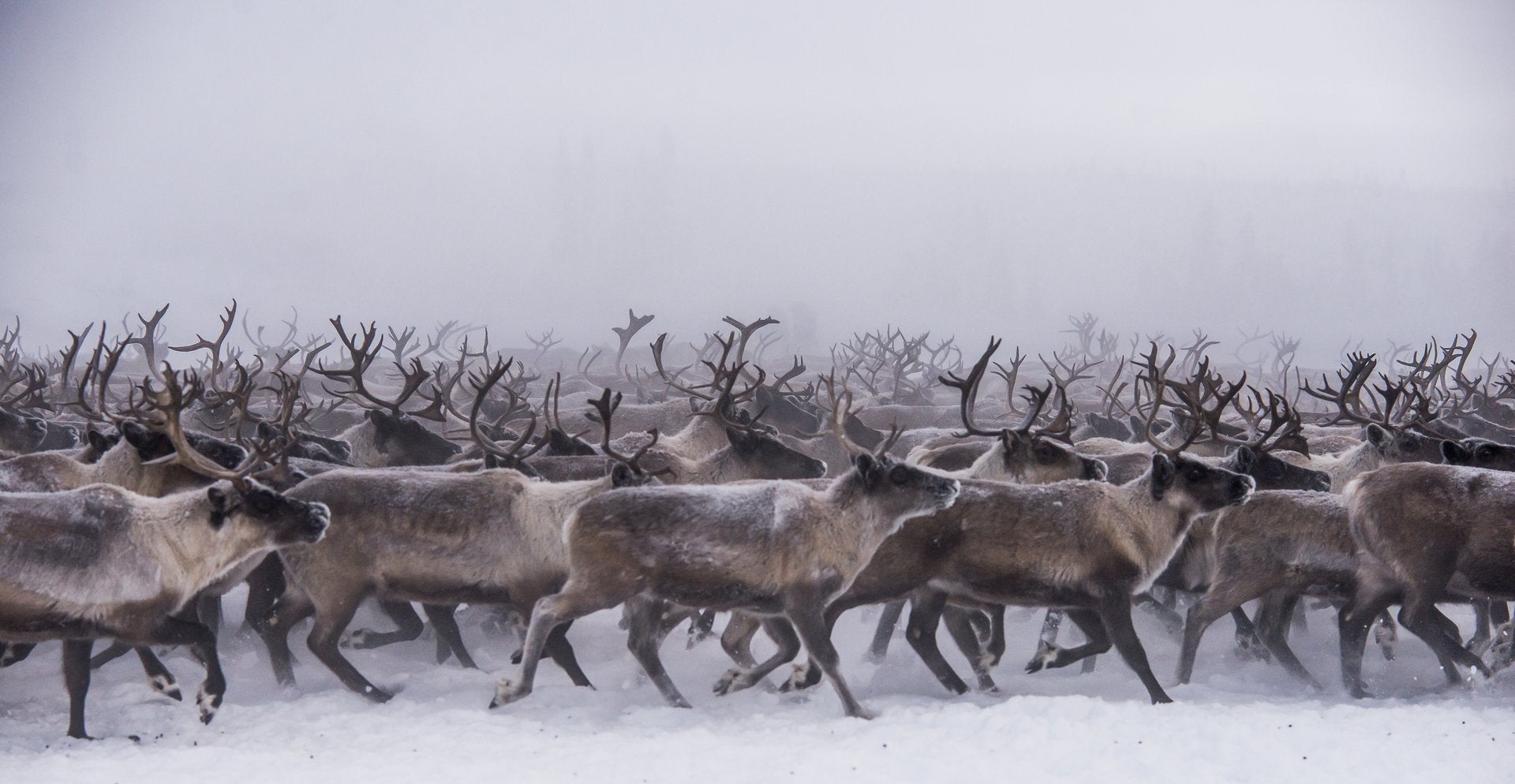
Caribou. Tundra North Tours - Inuvik, Northwest Territories Canada. Credit: Indigenous Tourism Association of Canada
In order to better determine the barriers and resource deficits Indigenous women experience as they rebuild their industry within the constraints of Western programs, we reached out to Indigenous women entrepreneurs in the northernmost regions of Canada to work with us in identifying gateways to well being through tourism. We used the method of “two-eyed seeing,” integrating Indigenous ways of knowing and Western knowledge systems, to identify common pathways to sustainable livelihoods. With Indigenous methodologies and the four R’s of Indigenous Research (Respect, Relevance, Reciprocity, and Responsibility) to guide us, we explored innovative and responsive businesses grounded in Indigeneity and social innovation. These are a few of the stories shared by the women we met.
Our journey, our story
In a land shrouded in mystery, the northern lights dance across the horizon, illuminating a majestic, yet challenging, way of life. Remote from many urban conveniences, Canada's northern Indigenous women are disproportionately impacted by climate change and the legacies of colonization. Through tourism, Indigenous women entrepreneurs in the North are reclaiming their self-determination and reassuming critical roles as community champions and stewards of the land.
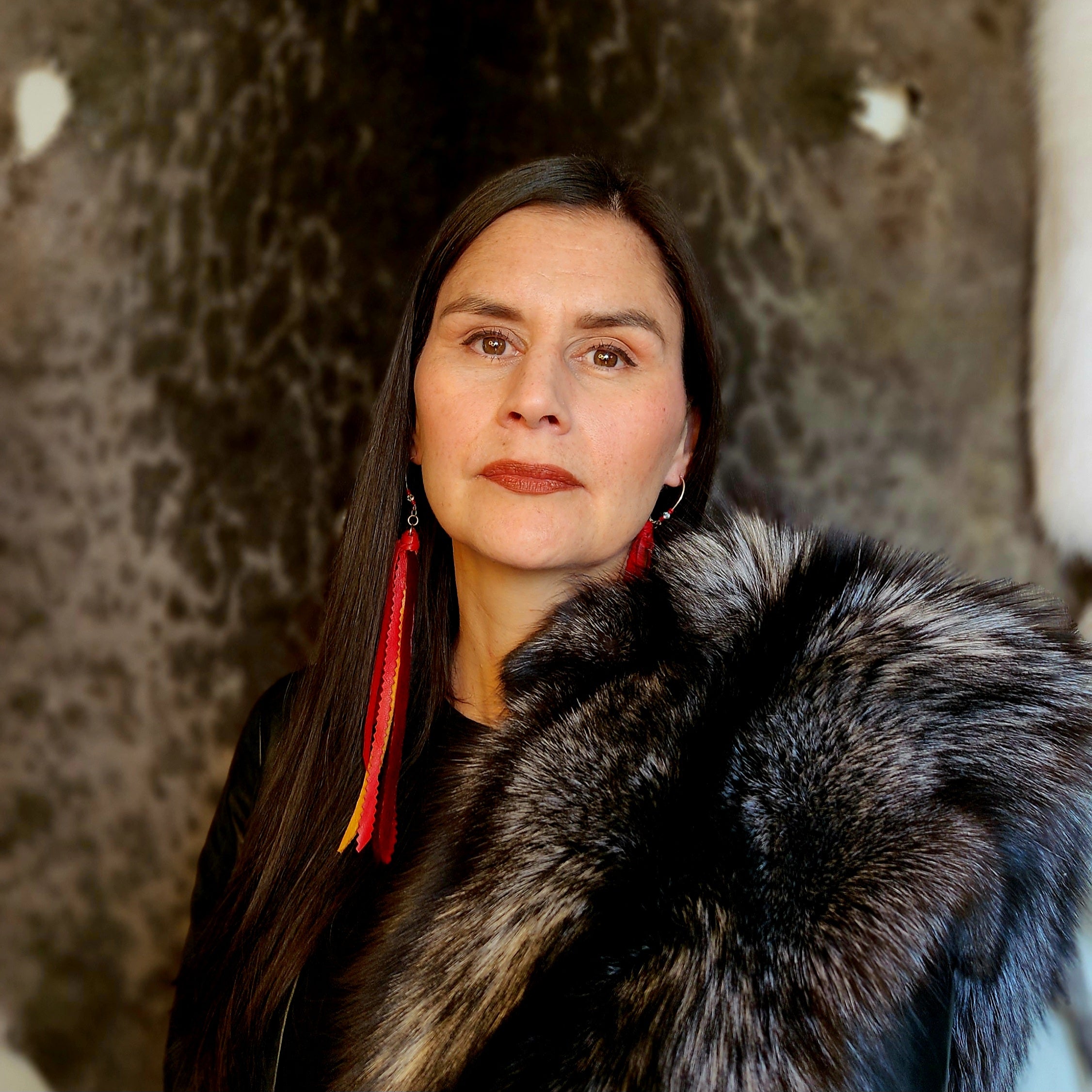
Taalrumiq, Inuvialuk fashion designer and social media influencer. Credit: Taalrumiq.
Inuvialuk fashion designer, Taalrumiq, named after her maternal Great-Naanak Taalrumiq, resides in the Northwest Territories. For Inuvialuk Peoples, traditional names carry profound responsibility. Believing that children share physical and spiritual traits with their namesakes, Elders and family members performing the naming ceremony place deep consideration into ensuring that both the child and ancestor are honored through the naming process. Born in a segregated hospital to an Inuvialuk mother and a Gwich'in father, Taalrumiq was raised with her Inuvialuit family and is descended from a long line of Inuit women respected for their talent as master seamstresses.
Creating clothing for family and community members is an esteemed role in the North. Not only does clothing protect people from the elements, but proper preparation and care of the hides also show deep respect for the animals used in their creation. Each seamstress's stitches and style are unique to her family.
Growing up, Taalrumiq spent time with her siblings and cousins in her grandmother's sewing room. Nestled between the hides and fabrics, she drew comfort from the smell and memories they inspired and stories they conjured. For Inuit Peoples, clothing means survival, and every item has a tale to tell. Seal and caribou skins are skillfully crafted into warm winter parkas, footwear, and hats, with special items passed down and repurposed over generations.
Today, Taalrumiq represents the future and potential of her people, occupying the intersection of tradition and technology. She is a graduate of the University of Alberta, where she earned a Bachelor of Science in Human Ecology and a Bachelor of Education, majoring in Home Economics and minoring in Art. She once imagined her future as a teacher but quickly realized that, despite her efforts, this path was not hers to follow. Life in a northern community without wrap-around support (such as child care) presents barriers that prohibit women from building sustainable livelihoods.
In 2019, using her traditional skills and entrepreneurial aptitude, Taalrumiq turned to tourism. She created a Facebook page and began sharing her work on social media under her Indigenous name, Taalrumiq, and today she has found a means to combine her storytelling skills with her Inuvialuit strengths as a seamstress and artisan, earning international recognition as a fashion designer, curator of fine art, and digital content creator. Now a social media influencer, Taalrumiq creates short format videos 'Invuialuitizing' style trends that revitalize timeless traditions and people's relationship with the planet. She shares her Inuvialuit culture and identity on Tik Tok, where she has amassed an impressive following, receiving close to two million likes on her videos.
Taalrumiq's parents are residential school survivors, an experience they hesitate to talk about to this day. "There was the humiliation of being told that Indigenous people were dirty and uncivilized and that our cultural practices were demonic. Our people were told we should aspire to become more ’civilized,’” she says. Taalrumiq was among her community's last generation of children to attend residential school. The hardship faced in pursuing education outside their community was too much for many of her peers, who dropped out of school.
Drawing inspiration from her family and ancestors, Taalrumriq says she is, first and foremost, an Inuvialuk woman: "No matter where I am in the world, I am Inuvialuk. My artwork makes me feel connected to that truth. Creating, viewing, and appreciating art is a necessary part of who we are as Inuvialuit people. We lost so much of our culture, our language, and our identity due to colonization, so it's important to create pieces that celebrate us, to remember where we come from, who we come from, and what we are capable of."
Colonization has compromised Indigenous women's well being and way of life across Canada. The Indian Act stripped them of their rights, leaving them vulnerable to poverty and over-represented as victims of violence. For a growing number of Indigenous women in Canada's North, tourism is a gateway to sustainable livelihoods and self-determination. Indigenous women entrepreneurs are Indigenizing business models and how they interconnect with people, place, and the planet.
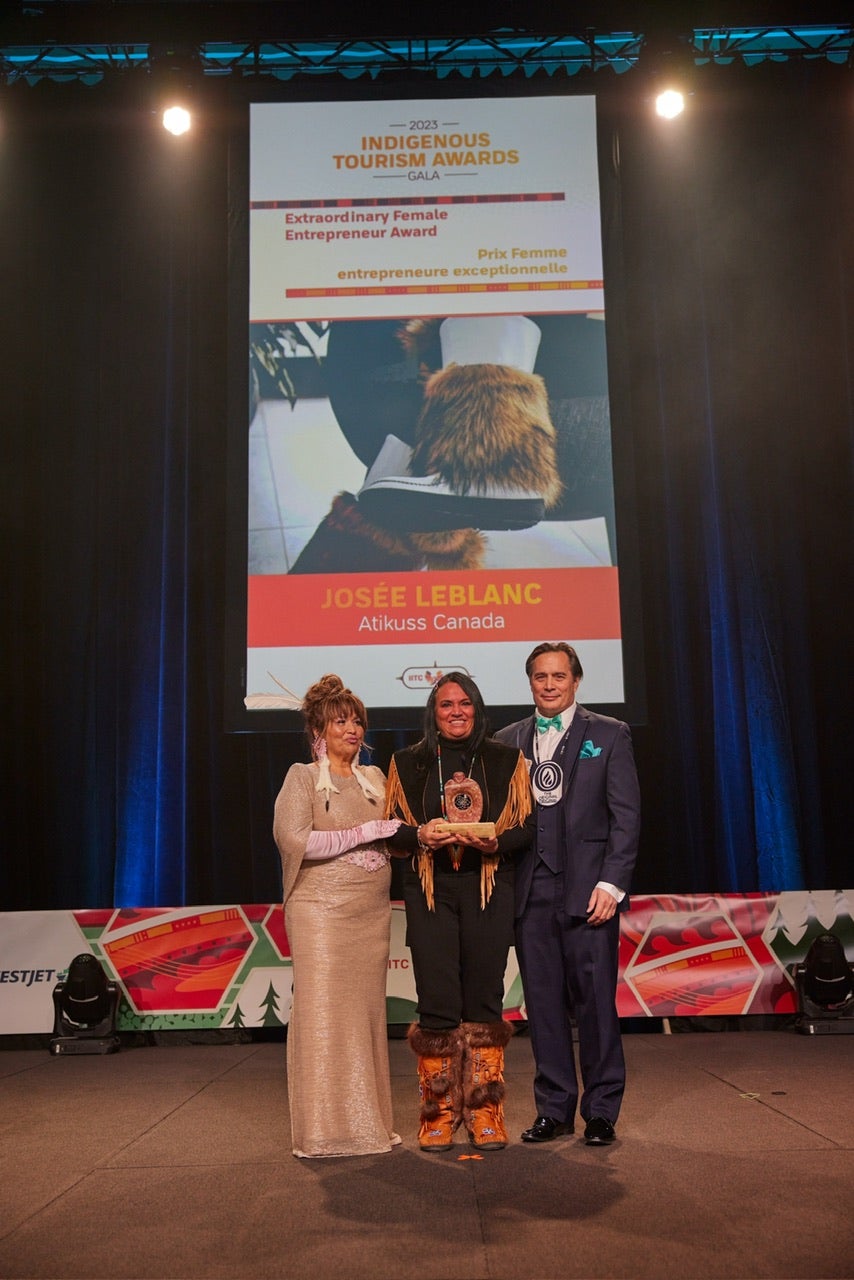
Josee Shushei Leblanc, owner of Atikuss, receiving her 2023 ITAC Indigenous Tourism Award for Female Entrepreneur of the Year at the International Indigenous Tourism Conference. Left: Keith Henry (Metis), ITAC President and CEO. Right: Marilyn Jenson (Yadultin & Dūsts’ā̀dle, Inland Tlingit/Tagish Khwáan from the Carcross/Tagish First Nation), ITAC Board Chair and Yukon Representative. Credit: Indigenous Tourism Association of Canada.
Josee Shushei Leblanc, member of the Uashat mak Mani-Uteman Nation in Cote-Nord, is the founder of Atikuss Canada, a social innovation enterprise driven by the sale of high-fashion mukluks (soft hide boots), and is changing the lives of Indigenous artisans in northern Quebec. Showcasing how Indigenous entrepreneurs can do business and how Indigenous businesses are intrinsically connected to tourism, Leblanc is blazing pathways to sustainable livelihoods for women entrepreneurs in Canada's North.
Atikuss means ‘young caribou’ in Innu. Known as the master of all animals and a vital source of well being to her people, the name epitomizes the purpose of Leblanc’s enterprise, which continues to grow and evolve, connecting her community through the revitalization of culture. She is the catalyst behind "HopeBoots," a project that allows customers to participate in the design of authentic Indigenous footwear.
When Leblanc decided to design traditional moccasins and mukluks, she wanted each pair to represent the artistry of her people. Incorporating the environmentally respectful techniques used by her ancestors, she aimed to create a sustainable business that would uplift her community by employing women with a living wage; in her view, anything less would be a form of cultural appropriation."When I decided to produce traditional moccasins, I realized that beadworkers were earning $3 an hour,” Leblanc says. “So I came up with a project that would provide these women a fair wage for their work, ensure the continuity of traditional craftsmanship, and showcase Indigenous culture."
With each pair of moccasins or mukluks sold, Atikuss creates new hope for Indigenous women by donating to local Indigenous women's organizations. But more than this, Atikuss educates people on developing deep and sustainable relationships with the planet through responsible consumerism. Western society views Attikus's products as high fashion. Leblanc would say that they are sustainable fashion created with high values.
Today, Attikus has emerged as a purveyor of culture and an economic catalyst for Indigenous artisans and the community they call home. An artisanal enterprise, it serves as a gathering spot, workshop, and museum. Economusee du Maskisin allows the public to meet the artisans, who share the traditional stories of their craft and culture, and become immersed in a multisensory experience connecting to the story behind the product.
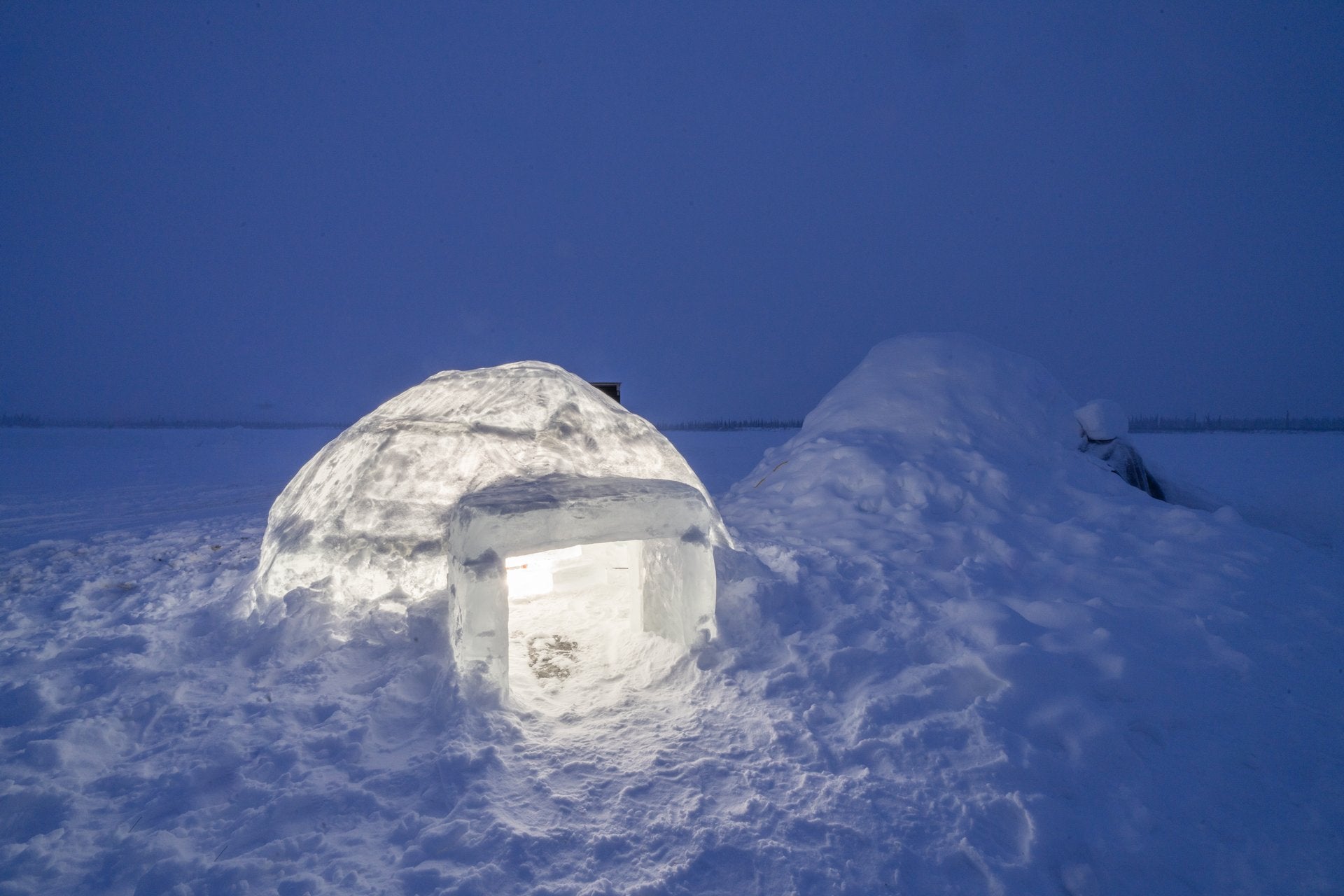
Igloo in Inuvik Northwest Territories Canada. Tundra North Tours. Credit: Jad Davenport.
The circle of connectivity
"Regenerative capitalism realizes that business isn't an addition to nature, but is intrinsically baked into it." — Louise Kejellerup Roper, Chief Executive Officer, Volans
With 55 percent of the world's economy relying on the planet to generate revenue, humanity's social and economic well being is at risk. Precariously employed populations are overrepresented in poverty and increasingly vulnerable to the dire consequences of climate change and the impact of colonization. It is time for us to lighten our load on the planet and consider humankind's interconnectivity with nature and each other. Applying two-eyed seeing to identify and strengthen regenerative capitalization represents a critical shift from business as usual.
Investment in Indigenous tourism opens a gateway to recovery and reconciliation and has the potential to improve the well being of Indigenous communities in northern Canada. The historical damage done by the mass exploitation of both people and the planet cannot be resolved by perpetrating the same practices that have brought us to where we are today. Rejuvenation and sustainability in tourism require Indigenous innovation and collaboration to succeed. The world needs to witness the relationship Indigenous people share with nature to fully understand the complex challenges humankind faces on an interconnected and finite planet.
-Yvette Rasmussen (Stswecem’c Xget’tem First Nation) is Program Manager of Northern Women Entrepreneurs at the Indigenous Tourism Association of Canada. Dr. Sonya Graci is an Associate Professor at Toronto Metropolitan University. The authors note that their use of the term ‘women’ is inclusive, representing cis women, Trans women, Two-Spirit, gender queer, gender fluid, and non-binary folx.
Top photo: Northern Lights in Yellowknife Northwest Territories, Canada. Credit: B. Dene Adventures.
